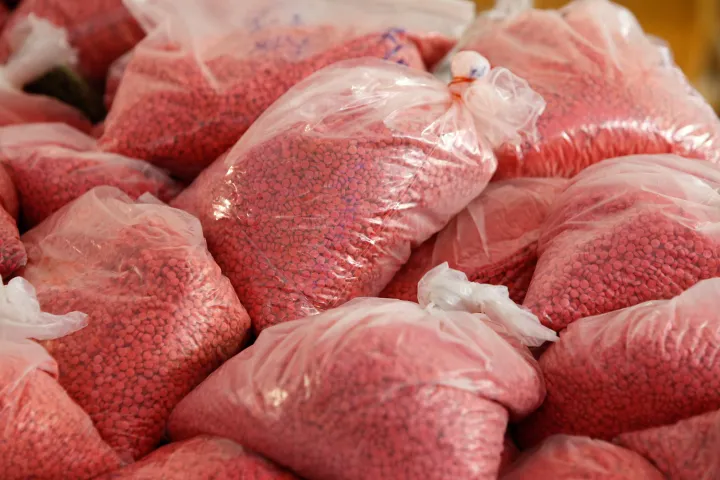The Public Health Ministry has proposed tightening the definition of a drug user by reducing the legally permissible number of methamphetamine tablets, known as ya ba, from the current threshold of five pills to one. This change aims to close a loophole that drug dealers exploit.
On Friday, Public Health Minister Somsak Thepsuthin led a meeting with representatives from various government bodies, including the Public Health Ministry, the Interior Ministry, the Office of the Attorney General, the Royal Thai Police, the Office of the Judiciary, the Office of the Narcotics Control Board, and the Office of the Council of State.
Mr. Somsak stated that the meeting reviewed ministerial regulations concerning drug possession categories and established a clearer distinction between drug users and dealers based on the number of methamphetamine pills possessed.
Individuals with one tablet of methamphetamine or less than 20 milligrams of the drug in powder or other forms should be considered drug users. However, further investigation could still categorize them as dealers if evidence of drug-related crimes is found.
“I want to emphasize that possessing even one methamphetamine pill is an offense. It must be determined whether the possessor is a user or a dealer. Users should receive rehabilitation treatment,” he said.
Under the policy “One consumer leads to one seller and then one producer,” Mr. Somsak indicated that possessing one pill could result in asset seizure.
The meeting attendees also agreed to adjust the threshold for amphetamine possession for personal use to less than 100 milligrams.
These changes were posted on the ministry’s website for public hearings starting yesterday.
Mr. Somsak explained that the rule change is intended to align more closely with drug suppression laws and to address public concerns over the five-pill rule, which has been criticized as a loophole allowing dealers to evade harsher penalties for selling or distributing drugs.
Regarding drug rehabilitation, Mr. Somsak directed the ministry to support the Ministry of Justice’s Department of Behaviour Control in treating over 100,000 people with mild drug-related symptoms.
Jirapong Songwatcharaphon, deputy spokesperson of the Ministry of Public Health’s Political Department, mentioned that an alternative injectable medicine will be used for patients with severe addiction who have been treated and discharged but still require assistance.
“This will benefit mentally ill patients and those who fail to take their prescribed medication, preventing treatment failures,” Mr. Jirapong said.





